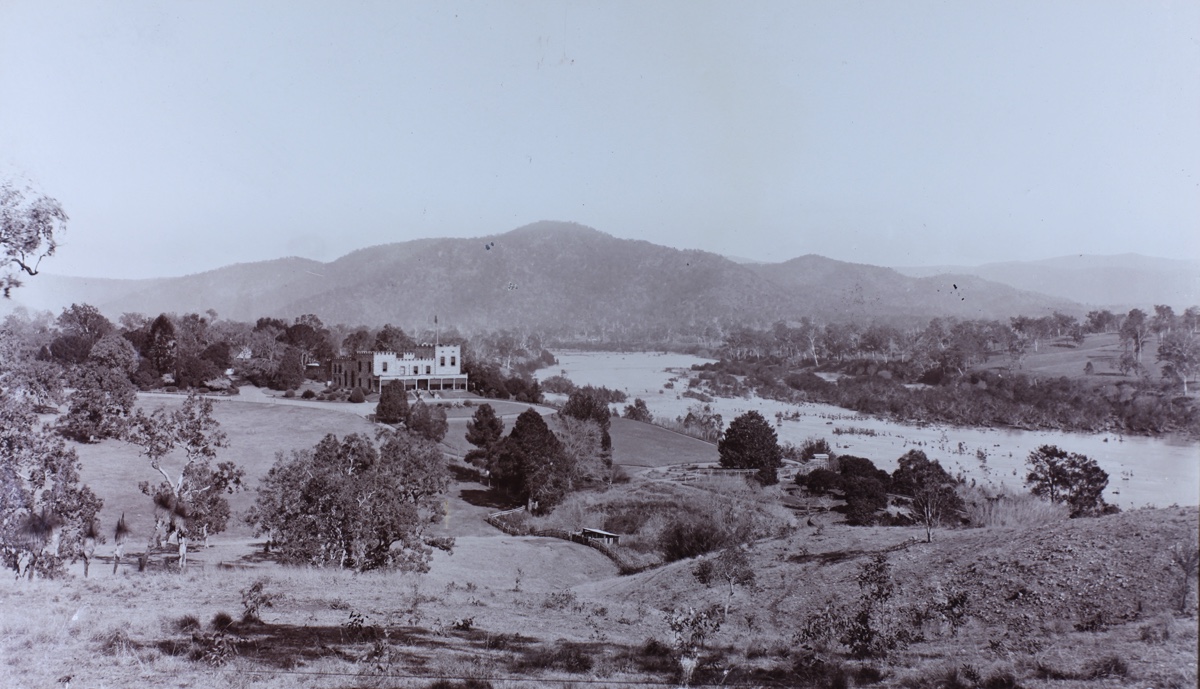A new book on the foundational years of one of Australia’s best-known pastoral stations offers a fresh look at this important and colourful piece of Australian regional history.
Edward David Stewart Ogilvie Squatter at Yulgilbar: His Personal Journeys 1814-1896, written by Dr Terry Grigg OAM is the most extensive and robust to be completed on the property. Based on new research by University of New England (UNE) history students Heather Gartshore (PhD candidate) and Karen Filewood (honours graduate), it tells the story of founder Edward Ogilvie, who settled the Yulgilbar Station in northern NSW’s Clarence Valley in 1840.
Dr Grigg, who has published previously on Australian squatting history, says what emerged very prominently from the research is that Edward, a squatter on what became a very lucrative cattle station, was very far from ordinary.
“He was tough, there is no doubt about that. He had to be to make a life in the wilds of northern NSW – and it really was wild. He described himself as spending ‘hours in the saddle’, but he was also far more complex. He was a scholar, a lover of the arts, a writer, an amateur architect and a politician. He loved Europe and spoke French and Italian. When he travelled around Europe with his mother and father, he wrote about it in a two-volume book published in London. He was so articulate and discerning, and a man of many talents,” Dr Grigg says.
Fascinatingly, the narrative in Dr Grigg’s book is woven around 30 years of personal correspondence and diary entries newly discovered in the UNE Archives between Edward Ogilvie and his son, William, adding insight around some of Ogilvie’s most important relationships that shaped both his life and professional dealings.
“Edward was concerned about his legacy, and always in his mind was that William would inherit the property. There was a long dispute; it was a torturous part of Edward’s life. It ended with William walking away from the property, and William being cut out as the major beneficiary in Edward’s will,” he says.
The new history is the first on the subject to be thoroughly referenced using what is evident in the primary sources. Dr Grigg says the assistance of Mr Bill Oates in the UNE Archives and his two UNE researchers was invaluable in making the publication possible.
UNE PhD student Heather Gartshore, who had researched her own family history in the Lismore and Grafton areas previously, said it was fascinating to discover new documents with Mr Oates and find new connections and patterns to the history of the region. She says Dr Grigg’s work is successful in contrasting the declining relationship with his son, and his surprisingly amiable relationship with the local Aboriginal people.
“It’s a different analysis that starts with two letters that trace the dissatisfaction between Edward and his son, which is in stark contrast to the strong relationship that he had with the local Aboriginal people, which really stood out at the time. He defended them. He went hunting with them. He spoke their dialect. He employed them. I found this really interesting and fascinating,” she says.
“It was a privilege to work on such an interesting project,” says social historian and history graduate Karen Filewood. “It took each of us on a journey into regional Australia and overseas to track down information from a wide variety of people and places.”
“Dr Grigg has transformed copious amounts of information into a fascinating and exceptionally detailed chronicle of a squatter’s life, effectively demonstrating the role biography and narrative have in understanding the past.”
The new book was commissioned by Yulgilbar Station’s current owners, Mrs Sarah and Mr Baillieu Myer AC. The Myers are glowing in the book’s introduction of the effort to ensure a robust and interesting history, calling the resulting work “very readable” and “a very useful addition to the literature of the Clarence River area in the 19th century.”
Edward David Stewart Ogilvie, Squatter at Yulgilbar: His Personal Journeys 1814-1896, is available for $35 including postage and can be ordered directly through the Myer family by emailing accounts@elgeepark.com.au


